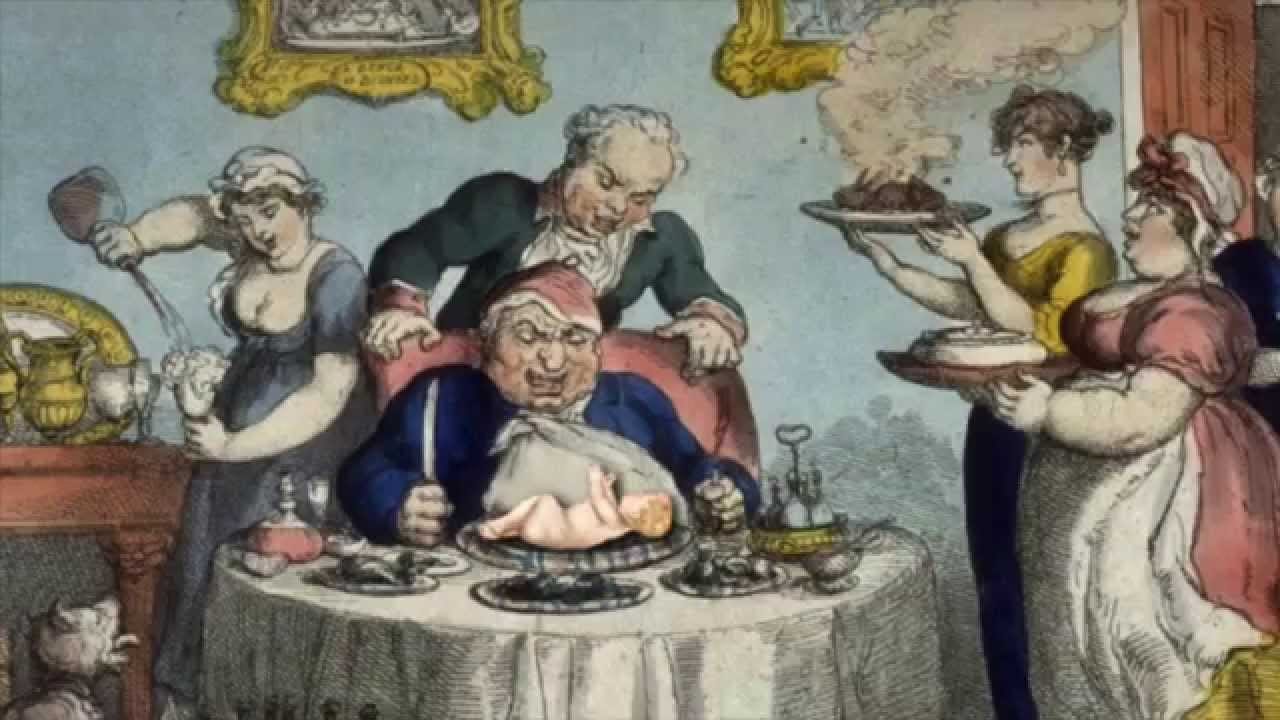A Modest Proposal for 2022
A Way to Solve Civilization's Problems
This is a Platform Q-A, questions posed and answered by the author. As such it is a form of conversation, so, the line of thought is not necessarily as straight as it would be in an essay.
By, the way, if you have just subscribed the previous posts are on the Platform home page.
Jonathan Swift’s idea – a classic of misanthropic argument – was that poor people should sell off their children as food for the wealthy, with consequences as illustrated in the painting above. That was the 1729 version of satire, which was meant to highlight the inequalities of that era. What is your “modest proposal”?
In the spirit of Swift and more recently Kurt Vonnegut’s dystopian visions of society, we should consider obliterating civilization, in particular those traits of human nature that represent the obstacles to the better world we all ostensibly seek.
In other words, start over….
Now, really…?
The list is very long: climate change, violence, bigotry, racism, sexism, inequality, and so on, are part of civilization and always have been. All of them are in the Bible. As long as there is human nature, there will be man- (and woman- and nonbinary-) made problems. There will also be, I should add, beauty, culture, and humanitarian impulses. These should be enhanced.
So, this is more than Swift 2.0. What do you really mean?
The more I learn and think about today’s problems, the clearer it becomes that we are destined to grapple with the same issues over and over. There is a case that significant progress has been made in a great many ways – longevity, for example. Fire, the wheel, and electricity have definitely made life better, if not safer. Perhaps the most notable exception of the moment is climate upheaval, a genuine existential threat. But even that is not unprecedented. Think of the Ice Age. A couple of years ago, the waters of Lake Michigan were so high that the surrounding bluffs were greatly endangered. Lake Michigan is four million years old, so my guess is that this has happened before.
What does history tell us about the course of events that have led us to today?
This is an exciting development of late: greater truth in exploring history in which accepted but misleading legends are revised to reflect what actually happened and how consistent some traits of human nature have proved to be. I particularly admire , Heather Cox Richardson, an historian who writes an immensely popular Substack newsletter. She takes an event of the moment – a racial reckoning or a pandemic – and places it in the flow of past events. A column in January, for example, explained that “All men are created equal” in 1776 was not about equality per se. The phrase meant that all (men, as then defined) had a right to rebel against a colonial oppressor. Understanding the past makes the present much more fathomable.
On the level of education about history, Katherine Sanford, my daughter, brings historical reality to her middle-school social studies students in Northern California. For instance, what does “Columbus discovered America” really mean? Or what are the myths around “All men are created equal”?
History is being reframed now, for better or worse: the real stories of 1492, 1619, and 1776 (or the 2020 elections, for that matter) are being told. The reframing of history is certainly not new, but at the moment the process is especially lively.
How does this meaningfully change our sense of civilization?
The basic principles of society are confirmed.
As Tip O’Neill declared “All politics is local.” And the old adage applies: your neighbor’s travail is sad. Your travail is a catastrophe. We are always bound by community, from our street to our globe. In the broadest political terms, consider the enduring debates over states’ rights versus the national interest. The U.S. Constitution was drafted in search of a balance between these factors – whose priorities should prevail? Today’s Supreme Court conservative 6-3 majority is, at bottom, about choosing which community – local or national – can make the laws.
And, by the way, are efforts now to suppress voting rights unprecedented? Women and Blacks waited a very long time for the ballot. Suffragettes and the civil rights movement inspire today’s activists to the same causes in modern guise.
What about business and industry? Are the power of tech behemoths and hedge fund billionaires overwhelming us?
Yes, as we were overwhelmed by rail and oil “trusts” in Teddy Roosevelt’s time, or during the Gilded Age, or by the interests of slaveholders and cotton traders in the South. Visit the Hamptons (or comparable destinations) for contemporary examples of how wealth displays itself to wretched excess.
If we reinvent civilization, what do preserve?
The good parts. The humanitarian instinct is very profound, and many of us seek to eradicate the ills of temperament, circumstance, and bias. We’ve done better over time. And yet, on race, for example, eliminating bias and bigotry is still very much a long-term goal. And today’s best art and architecture can be venerated, as the artifacts at the Parthenon and Petra are.
So, what are the actual benefits of accepting that the traits of civilization can be adjusted and improved, but much of human nature is immutable?
The more we can accept the embedded conditions human nature creates, the more we can imagine ways to deal with them. Our ambitions are served by objectives that are desirable, but perhaps not attainable in any one lifetime, or ever.
Whoa! That is not exactly a modest proposal.
Neither was Swift’s. Satire, irony, and humor are also in human nature.




